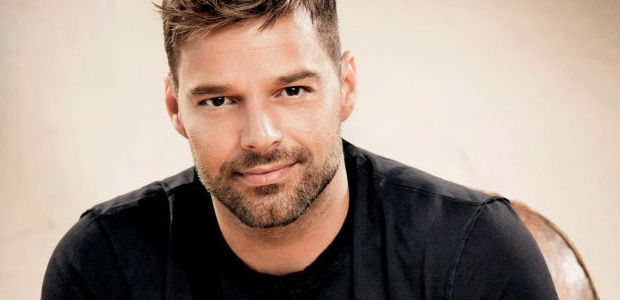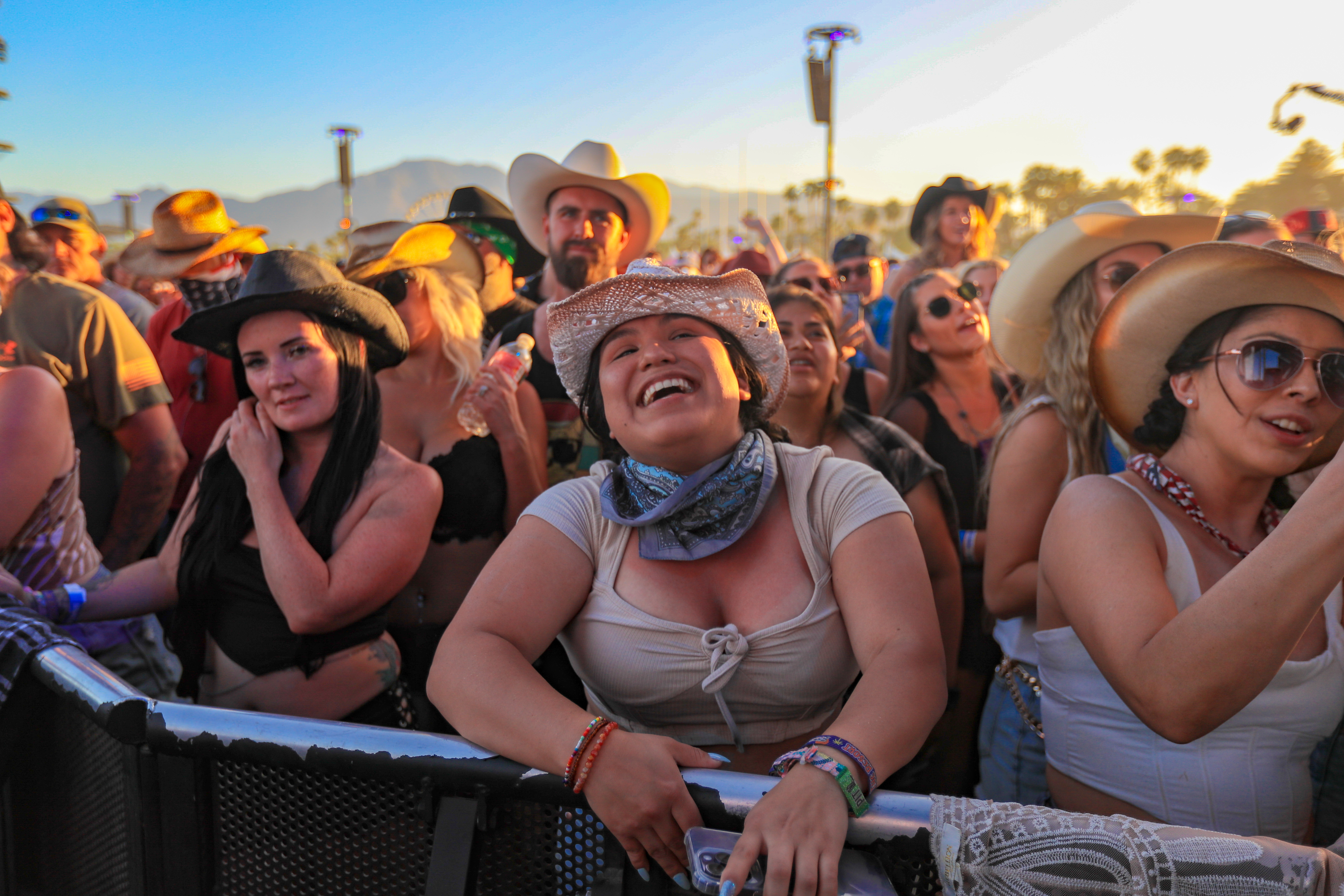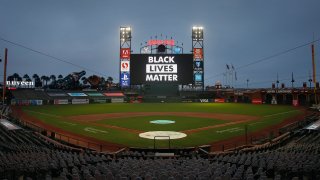
The Los Angeles Dodgers arrived at Oracle Park in San Francisco on Wednesday like any other day. Players got treatment, pitchers threw bullpen sessions, all in all it was business as usual for the Boys in Blue.
Just after 1:00 p.m. PT, word broke that the NBA's best team, the Milwaukee Bucks, did not leave their locker room for their playoff game against the Orlando Magic. They were boycotting the game in protest of the shooting of Jacob Blake, which occurred in their home state of Wisconsin. The reverberations of that decision would set off a chain reaction in professional sports that no one could see coming.
Mookie Betts, the Dodgers newest superstar was on his way to the ballpark when he got the news; he immediately texted his family. By the time he arrived at the stadium and began preparations for that evening's game against the rival San Francisco Giants, the NBA and the National Basketball Players Association announced that all playoff games scheduled for Wednesday were cancelled and would be postponed. That included the Los Angeles Lakers, who were one win away from eliminating the Portland Trail Blazers in the first round of their playoff series.
The news sent shockwaves through the stadium in San Francisco, as Dodger players began to discuss the news and if it would have any affect on their game later that night. Nobody thought it would.
Relief pitcher Caleb Ferguson sat down for a Zoom call just after 2:30 p.m. PT. Adorned in a blue Dodgers hoodie, the first question he was asked was if he and his teammates had discussed whether or not to play that night.
"No, I have not heard anything," he said . "I guess if that conversation comes up, we'll have it as a group and decide and go from there."
Around the same time, news began to break on social media that the Milwaukee Brewers were meeting to decide if they were going to play their game later that day against the Cincinnati Reds, or stand in solidarity with the Bucks.
Upon hearing the news, Dodger players began texting their friends and former teammates on the Reds and Brewers. "Were the rumors true? Were MLB teams also going to boycott games like the NBA?"
Shortly after 3:00 p.m. PT they got confirmation. Players on the Milwaukee Brewers and Cincinnati Reds had issued a joint statement announcing they would not play Wednesday's game in order to "draw as much attention to the issues that really matter, especially racial injustice and systemic oppression."
At 3:30 p.m. PT, Dodgers' manager Dave Roberts was scheduled to have a pregame Zoom interview with select media. As media members anxiously awaited his arrival, the minutes began to pass without Roberts, or any explanation as to what was causing his delay.
A Dodgers team meeting had been scheduled for 4:00 p.m. PT sources told NBC LA, to discuss the protests and whether or not the Dodgers would play that night.
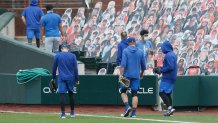
By the time the meeting took place the aftershock of the Brewers and Reds announcement had begun to impact other teams and leagues as well. Chicago Cubs outfielder Jason Heyward announced he was going to sit out his team's game against the Detroit Tigers in protest. Cardinals' outfielder Dexter Fowler, and former Dodger outfielder Matt Kemp (now with the Colorado Rockies) joined him. The WNBA postponed all their games scheduled for Wednesday, as did Major League Soccer.
Local
Get Los Angeles's latest local news on crime, entertainment, weather, schools, COVID, cost of living and more. Here's your go-to source for today's LA news.
As the meeting inside the Dodgers' clubhouse began, Betts had already made the decision he was not going to play.
"I was sending texts back and forth with my family, and I just realized it's probably best I don't play," he said.
Roberts led the meeting and allowed Betts to speak first. He told his teammates that he wasn't going to play in the game, and that he was fully on board if his teammates wanted to play without him. He said he would be there to support them, regardless.
"For me, no matter what, I wasn't going to play tonight," Betts said. "Change needs to be made. I have to use my platform to at least get the ball rolling. I talked to my teammates and told them how I felt and they were all by my side. I couldn't ask for better teammates then what I have here, and I appreciate everything that was said and has been done so far."
Roberts, the team's first African-American manager in Dodgers franchise history, decided to join Betts, and told the team he would also sit out the game in protest.
"It's something that's personal to me," said Roberts. "My cousin got shot and killed. My father was one of the first black men in his high school and received many threats and got in many fights…I was going to sit out this game. I know that Mark Walter and ownership were 100 percent supportive of my decision."
Dodgers' first base coach George Lombard supported him and was also going to sit out the game in protest. His mother, Posy, was a noted civil rights activist and was friends with Dr. Martin Luther King Jr. Another Dodger coach, strength and conditioning coach, Travis Smith, also addressed the team in the meeting. As an African-American, he wanted to see change, and was also going to sit out the game in protest. Dodgers' closer Kenley Jansen, a black player from Curacao, also spoke in the meeting sources told NBC LA.
"The hope that we have is that the world can come together as one for peace and love for everybody," said Jansen. "All these things that's happening against people of color need to stop. Speaking for all the guys in the locker room, we all get it. There needs to be a change. I'm seeing all the other guys getting the message and supporting the black community. This is a beautiful country, but it's time now for change."
After a lengthy silence and period of contemplation, three-time Cy Young Award winner Clayton Kershaw was the first non-Black player to speak in the meeting. Kershaw has recently become an advocate for the Black Lives Matter movement, and has been outspoken in recent months about racial inequality and social injustice. Behind the scenes, Kershaw led a "In This Together," movement with support of the Dodgers and helped record a video along with several other white teammates, speaking out about racial injustice.
"Mookie [Betts] said he wasn't going to play and that started the conversation in the clubhouse," said Kershaw. "That started our conversation as a team on what we can do to support that. More than anything, as a teammate of Mookie's, as a member of this team with Doc [Dave Roberts] and George [Lombard] and Travis [Smith] and Kenley [Jansen], and all these guys, as a white player on this team, I ask myself 'How can I show support? What is something tangible that we can do to help our black brothers on this team?' And we thought the best thing to do was support him by not playing."
Kershaw was scheduled to start the game that night. Anyone who knows Kershaw and his methodical daily routine, knows how he hates any disruption on the days he starts. For Kershaw to be the first non-Black player to speak in the meeting, and help guide the conversation about not playing in support of their teammates and coaches, speaks volumes to how important of an issue this was in that locker room.
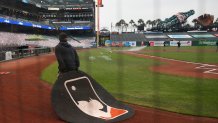
Sources told NBC LA that over the next hour many other players shared their thoughts and opinions and everyone's voice was heard. Sometimes the conversations got difficult, not everyone agreed with the decision to sit out, but everyone was given the right to share their opinion.
Once the decision not to play was made, the Dodgers needed to reach out to ownership and the front office, as well as the Giants. Dodgers' ownership was contacted and supported the decision, as were the Giants, who were having similar meetings and discussions themselves.
"We did talk to the Giants as well, and they were in lock step with our thoughts," said Roberts. "It's not a political issue. This is a human being issue. We all need to be treated the same way. And a black man getting shot seven times in the back…we need to be better. That just can't happen."
Just after 6:00 p.m. PT, more than two hours after the meeting began, sources told NBC LA that the team had agreed not to play in the game, thus ending a surreal day inside Oracle Park. Major League Baseball released a statement shortly thereafter respecting the Dodgers' decision, and all of the teams and players that decided not to play on Wednesday.
A few minutes later, that original Zoom call with the media that was scheduled for 3:30 p.m. with Dave Roberts took place; this time with Roberts standing alongside Betts, Kershaw, and Jansen in solidarity.
Roberts opened the video conference call with a powerful statement before answering questions:
"What's going on in our country, the recent happenings in Wisconsin, players and coaches came together, Dodgers and Giants, and we felt that to not play tonight, allowing us to use our platform and to use our voices, and to let the world know, and to let the country know how sad and frustrated and angered we all are. Looking at the world, the way the country is right now, people of color have been treated this way for a long time and these conversations need to be had."
Not only were the conversations had, but they were all listened to and respected equally. In the end, players from all races, ethnicities, backgrounds, and religions found the courage to join together in solidarity for a moment in history that is much bigger than baseball. Ultimately, they did what they believe is the right thing to do, and more importantly, they did it together.

